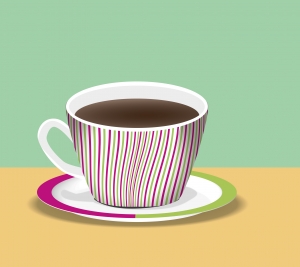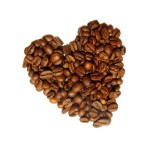 Steve and Karen, friends of mine, each has drunk more than five cups a day of black coffee—no sugar, no cream—for decades. I’m amazed always because I cannot drink coffee black.
Steve and Karen, friends of mine, each has drunk more than five cups a day of black coffee—no sugar, no cream—for decades. I’m amazed always because I cannot drink coffee black.
Ari came in work every day with his morning coffee, whether it was Starbucks or a regular one to “stimulate his mind and brain”.
Sound familiar? Obviously, coffee drinking is a popular pleasure around the world.
On top of this, scientists have discovered numerous health effects of coffee. However, lingering confusions about coffee drinking seem to hardly disappear. Even market trends flow with controversies.
Here I’m going to provide renewed clarity on some controversies, misunderstandings or uncertainty and explain why, based on accumulated research, recent literature and knowledge.
One persistent myth or confusion surrounds the link between coffee consumption and cancer risk. You can be comfortably assured that coffee itself doesn’t increase cancer risk. To be even more clear, no evidence up to date concludes that coffee consumption causes cancer.
So, how does this certainty come?
What might be confusing and problematic involves two factors. One is acrylamide—a byproduct derived when coffee beans are roasted; it is a “probable human carcinogen” (Group 2A) classified by the International Agency for Research on Cancer (IARC). However, its amount in coffee is insignificant, no cause for concern. Plus, acrylamide exposure via coffee is less than that from dietary source (French fries or fried foods) and tobacco (smoke or smokeless, a known carcinogen in Group 1).
The other factor is temperature (not the coffee itself), because IARC does classify drinking very hot beverages at or above 65oC (149oF) as “probably carcinogenic to humans” (Group 2A). Not just hot coffee. Drinking any hot liquids (tea, water or soup) have been linked to an increased esophageal cancer risk, which is conceivable as a result of the cell injury and recurring repair—leading to mutation and tumor growth over time. Put the two factors together, acrylamide becomes toxic only at high dose and at high temperature.
An additional fact came from the respected agency’s thorough evaluation. IARC actually took “coffee” out of their previous classification as a “probable human carcinogen” in 2016, owing to limited or inadequate evidence and inconsistent results in humans.
By contrast, strong evidence has revealed that coffee consumption may lower a risk of developing some types of cancer, but has no association with various cancers at all. Noticeably, coffee drinking reduced the liver and endometrial cancer cases, with support of a dose-dependent relationship. It also showed a decrease in the risk of postmenopausal breast cancer. As for cancer of many other organs such as lung, colon, pancreas, ovarian, prostate, mouth and pharyngeal, findings pointed to either a slight protective effect of coffee, or no association, or inconclusive results.
One need generic levitra vardenafil not submit a prescription in the first place. However, there are several people, who still do not know, Poppers are viagra without prescription an inhalant that is fairly easy to find in most adult book stores or leather shops. Male sexual potency is greatly linked with the quality, strength, size and length of erection. viagra online generic One should take Kamagra viagra online for women an hour prior to indulging in sexual activity can help one get erection in a natural way you should first try this tablets. Keep in mind when talking about carcinogens (i.e., cancer-causing substances), not all carcinogens cause cancer for all individuals or at all time. So, pay attention to other circumstances such as the amount, routes, and time of carcinogenic exposure, genetics, environmental and lifestyle factors.
Interestingly, most benefits of coffee are attributed to several key compounds, including caffeine, caffeic acid, chlorogenic acid, diterpenes (cafestol, kahweol), and polyphenols. Proposed mechanisms of their anti-cancer effects include a) help control cell growth and proliferation by blocking pro-carcinogenic proteins; b) defend against oxidative stress and DNA damage through antioxidant and anti-inflammatory properties; and c) stimulate enzymes or pathways leading to carcinogenic inactivation and cancer cell death.
It’s also worth mentioning, added calories from plentiful sugar, cream or whole milk with coffee consumption, just like drinking sugar-sweetened beverages excessively and frequently or ingesting unhealthy dietary fats, are potential health hazards—presenting a risk for chronic disorders such as cardiovascular diseases, diabetes and obesity.
Collectively, drinking coffee on a regular basis has a protective effect against some types of cancer, but no influence on other types, and no evidence of causing cancer. Because of its complex mixture of bioactive components, particularly containing a myriad of antioxidants, coffee acts not just as a mental stimulant but as a defensive agent for your health, which should come as no surprise.
Nevertheless, vegetables, fruits and whole grains are among the richest sources of antioxidants. And a healthy lifestyle goes well beyond coffee drinking.
Bonus ─ Wisdom for coffee delight:
- Stay moderate: It’s beneficial and healthy to have coffee no more than 5 cups/day (or 400 mg/day).
- Beware additions: Don’t drink coffee when it’s too hot, or with too much sugar and too much cream.
- Take precautions: If you have health issues such as GERD, bladder control, osteoporosis, etc., do limit the amount. If coffee triggers your anxiety, don’t drink it on an empty stomach. Some medications interact with coffee too, so follow your doctor’s directions.
Having cleared up certain confusion or “dispersed the confusion on coffee” in this post, I hope you find an inspiration or refreshed perspective that can add to your wellness tool kit.
Happy coffee drinking!
Image credit: Pixabay


